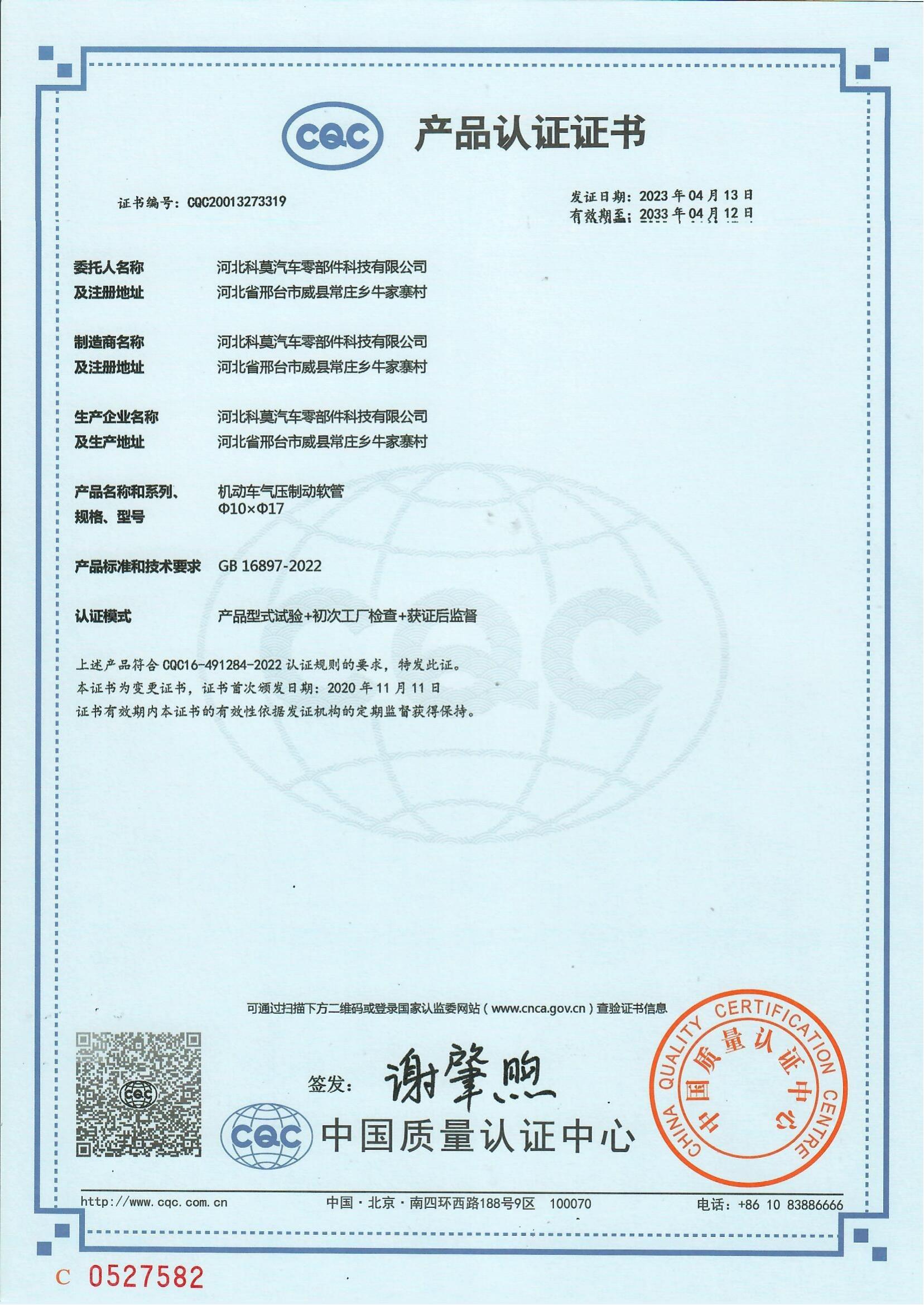Optimizing Diesel Exhaust Fluid Delivery with Durable Hose Solutions for Efficient Performance
ຕ.ລ. . 05, 2024 23:37 Back to list
Optimizing Diesel Exhaust Fluid Delivery with Durable Hose Solutions for Efficient Performance
Understanding Diesel Exhaust Fluid Hose Importance and Maintenance
Diesel Exhaust Fluid (DEF) has become a critical component in modern diesel engines, primarily to reduce harmful emissions and comply with stringent environmental regulations. The DEF system relies on precise components, one of which is the DEF hose. This specialized hose plays a vital role in ensuring the efficient delivery of DEF from the tank to the engine’s Selective Catalytic Reduction (SCR) system.
The primary function of a diesel exhaust fluid hose is to transport DEF, a solution of urea and deionized water, under varying temperature and pressure conditions
. These hoses are designed to resist the corrosive effects of DEF, which can damage ordinary rubber hoses. Most DEF hoses are made from durable materials, such as polyamide or reinforced rubber, which not only provide resistance to the chemical properties of DEF but also prevent leakage, ensuring optimal engine performance.One critical aspect to consider when discussing DEF hoses is their maintenance. It's essential that operators regularly inspect these hoses for signs of wear, cracking, or physical damage. Given that DEF is commonly stored for long periods, it’s also important to check the hoses for any blockages or crystallization, which can occur if DEF is exposed to air or if it is stored improperly.
diesel exhaust fluid hose

Proper installation of DEF hoses is indispensable for the overall efficiency of the DEF system. Hoses should be securely attached to prevent disconnection during operation, which could lead to spillage and create environmental hazards. Moreover, ensuring that the hoses are free from kinks or sharp bends will aid in maintaining a steady flow of DEF and prolong their lifespan.
It's also worth noting that the temperature range for DEF hoses is an important consideration. DEF freezes at approximately 12°F (-11°C) and begins to decompose at temperatures above 86°F (30°C). Therefore, when selecting hoses, one must consider the operating environment of the vehicle, ensuring that the hoses can withstand extreme conditions without compromising functionality.
In conclusion, diesel exhaust fluid hoses may seem like a small component in the larger diesel engine system, but they are crucial for effective emissions control. Regular maintenance, proper installation, and choosing the right material are essential practices that enhance the performance and longevity of DEF hoses. As regulations continue to tighten around emissions, understanding and maintaining these systems will become increasingly important for vehicle operators looking to remain compliant and eco-friendly.
